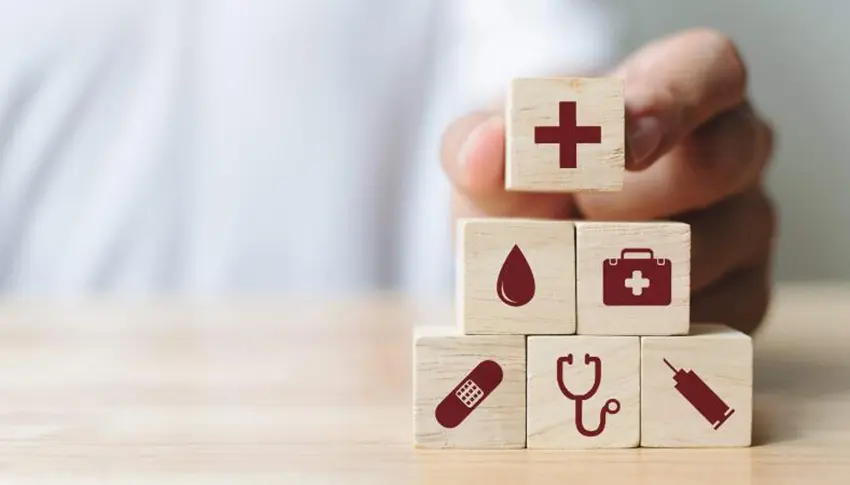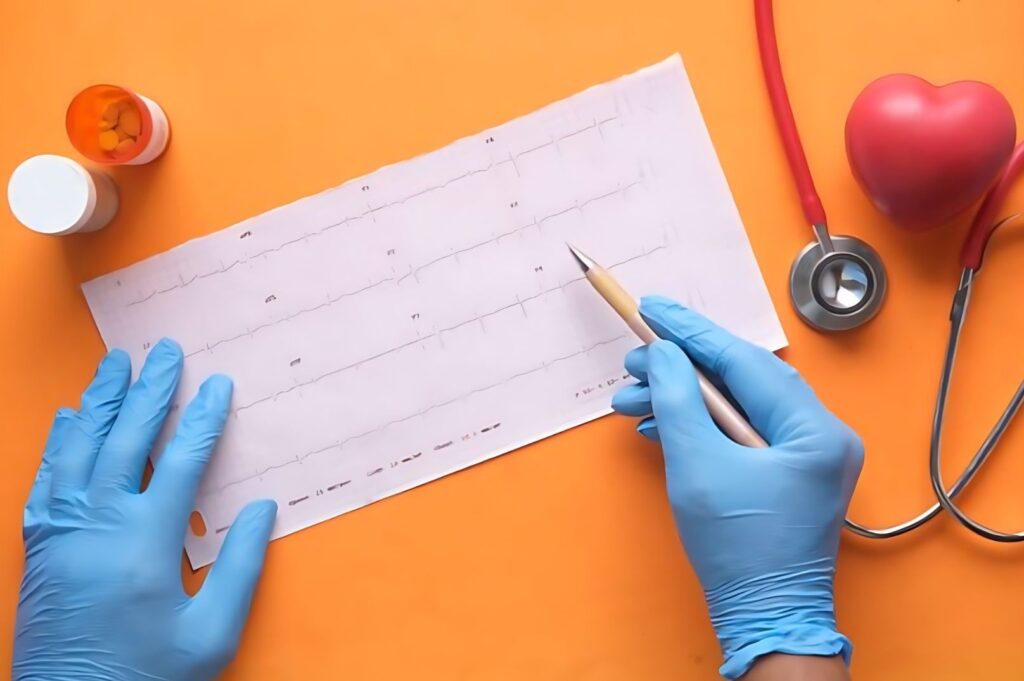Let’s dive into the world of health trivia! We all want to be healthy, but sometimes, it’s hard to keep up with all the facts and myths. It’s easy to feel overwhelmed or unsure about what we know about health and wellness.
I’ve got good news for you. This blog post has over 211+ health trivia questions that will test your knowledge and teach you new things about your body and well-being.
Here’s what you’ll find:
- A wide range of health topics
- Fun and interesting facts
- Questions for all levels of health knowledge
Get ready to challenge yourself, learn something new, and maybe even impress your friends with your health smarts!
List of Surprising Health Trivia Facts You Didn’t Know

-
Q: How many neurons are in the human brain?
A: Approximately 86 billion -
Q: What part of the brain controls balance?
A: Cerebellum -
Q: Which nervous system is responsible for the fight-or-flight response?
A: Sympathetic nervous system -
Q: What is the largest artery in the human body?
A: Aorta -
Q: How many chambers are in the human heart?
A: Four (two atria and two ventricles) -
Q: What type of blood cells are responsible for clotting?
A: Platelets -
Q: Where does the majority of nutrient absorption occur in the digestive system?
A: Small intestine -
Q: How long is the average adult’s small intestine?
A: About 20 feet (6 meters) -
Q: What enzyme in saliva breaks down starches?
A: Amylase -
Q: What is the longest bone in the human body?
A: Femur (thighbone) -
Q: How many bones are in the adult human skeleton?
A: 206 -
Q: Which muscle is considered the strongest based on its weight?
A: Masseter (jaw muscle) -
Q: What is the name of the protective fluid surrounding the brain and spinal cord?
A: Cerebrospinal fluid (CSF) -
Q: Which gland in the brain regulates sleep patterns?
A: Pineal gland -
Q: What is the smallest bone in the human body?
A: Stapes (in the middle ear) -
Q: How many pairs of ribs does a typical human have?
A: 12 pairs -
Q: What is the name of the thin membrane that covers the lungs?
A: Pleura -
Q: Which organ produces bile?
A: Liver -
Q: What is the scientific name for the voice box?
A: Larynx -
Q: How many taste buds does the average human tongue have?
A: About 10,000 -
Q: What is the largest internal organ in the human body?
A: Liver -
Q: Which part of the eye contains melanin, giving it its color?
A: Iris -
Q: What is the medical term for the collarbone?
A: Clavicle -
Q: How many teeth does an adult human typically have?
A: 32 -
Q: What is the name of the tube that connects the throat to the stomach?
A: Esophagus -
Q: Which part of the brain is responsible for regulating body temperature?
A: Hypothalamus -
Q: What is the scientific name for the kneecap?
A: Patella -
Q: How many pairs of cranial nerves are there in the human body?
A: 12 pairs -
Q: What is the largest gland in the human body?
A: Liver -
Q: Which blood type is considered the universal donor?
A: O negative -
Q: What is the medical term for the windpipe?
A: Trachea -
Q: How many lobes does the human brain have?
A: Four (frontal, parietal, temporal, and occipital) -
Q: What is the name of the muscle that separates the chest cavity from the abdominal cavity?
A: Diaphragm -
Q: Which organ produces insulin?
A: Pancreas -
Q: What is the scientific name for the thighbone?
A: Femur -
Q: How many vertebrae are in the human spine?
A: 33 -
Q: What is the largest organ of the human body?
A: Skin -
Q: Which part of the brain is responsible for memory formation?
A: Hippocampus -
Q: What is the medical term for the shoulder blade?
A: Scapula -
Q: How many pairs of salivary glands does a human have?
A: Three pairs -
Q: What is the name of the pigment that gives skin its color?
A: Melanin -
Q: Which part of the eye focuses light onto the retina?
A: Lens -
Q: What is the scientific name for the funny bone?
A: Ulnar nerve -
Q: What virus causes chickenpox?
A: Varicella-zoster virus -
Q: Which disease is characterized by the destruction of insulin-producing cells?
A: Type 1 diabetes -
Q: What is the most common type of cancer in men?
A: Prostate cancer -
Q: What is the name of the genetic disorder that results in the buildup of thick mucus in the lungs?
A: Cystic fibrosis -
Q: Which rare disease affects the connective tissue and is characterized by very stretchy skin?
A: Ehlers-Danlos syndrome -
Q: What is the most common mental health disorder in the United States?
A: Anxiety disorders -
Q: Which disorder is characterized by alternating periods of mania and depression?
A: Bipolar disorder -
Q: What neurotransmitter is often associated with feelings of happiness and well-being?
A: Serotonin -
Q: What is the medical term for high blood pressure?
A: Hypertension -
Q: Which vitamin deficiency causes rickets?
A: Vitamin D -
Q: What is the most common type of dementia?
A: Alzheimer’s disease -
Q: Which autoimmune disease causes the body to attack its own joints?
A: Rheumatoid arthritis -
Q: What is the medical term for inflammation of the liver?
A: Hepatitis -
Q: Which bacterial infection is known as “the great imitator” due to its varied symptoms?
A: Syphilis -
Q: What is the most common sexually transmitted infection?
A: Human Papillomavirus (HPV) -
Q: Which disease is caused by a deficiency of insulin or insulin resistance?
A: Diabetes mellitus -
Q: What is the medical term for abnormal curvature of the spine?
A: Scoliosis -
Q: Which genetic disorder is characterized by an extra chromosome 21?
A: Down syndrome -
Q: What is the most common eating disorder?
A: Binge eating disorder -
Q: Which disease is characterized by uncontrolled cell growth in the lungs?
A: Lung cancer -
Q: What is the medical term for a heart attack?
A: Myocardial infarction -
Q: Which neurodegenerative disease causes tremors and movement difficulties?
A: Parkinson’s disease -
Q: What is the most common type of stroke?
A: Ischemic stroke -
Q: Which disease is caused by the human immunodeficiency virus (HIV)?
A: AIDS (Acquired Immunodeficiency Syndrome) -
Q: What is the medical term for inflammation of the stomach lining?
A: Gastritis -
Q: Which disorder is characterized by recurrent seizures?
A: Epilepsy -
Q: What is the most common type of arthritis?
A: Osteoarthritis -
Q: Which rare genetic disorder causes progressive muscle weakness and loss of muscle mass?
A: Duchenne muscular dystrophy -
Q: What is the medical term for inflammation of the appendix?
A: Appendicitis -
Q: Which disease is caused by the bacterium Mycobacterium tuberculosis?
A: Tuberculosis -
Q: What is the most common type of skin cancer?
A: Basal cell carcinoma -
Q: Which disorder is characterized by difficulty reading and recognizing words?
A: Dyslexia -
Q: What is the medical term for chronic ringing in the ears?
A: Tinnitus -
Q: Which autoimmune disease causes the immune system to attack the thyroid gland?
A: Hashimoto’s thyroiditis -
Q: What is the most common cause of bacterial food poisoning?
A: Salmonella -
Q: Which disease is characterized by abnormal bone growth and enlarged extremities?
A: Acromegaly -
Q: What is the medical term for inflammation of the pancreas?
A: Pancreatitis -
Q: Which rare genetic disorder causes the body to store excess iron?
A: Hemochromatosis -
Q: What is the most common type of inflammatory bowel disease?
A: Ulcerative colitis -
Q: Which disorder is characterized by an intense fear of social situations?
A: Social anxiety disorder -
Q: What is the medical term for a ruptured disc in the spine?
A: Herniated disc -
Q: Which disease is caused by a deficiency of clotting factors in the blood?
A: Hemophilia -
Q: What is the most common type of thyroid disorder?
A: Hypothyroidism -
Q: Which vitamin is essential for blood clotting?
A: Vitamin K -
Q: What mineral is crucial for maintaining healthy bones and teeth?
A: Calcium -
Q: Which vitamin is known as the sunshine vitamin?
A: Vitamin D -
Q: How many calories are in one gram of fat?
A: 9 calories -
Q: What is the recommended daily intake of fiber for adults?
A: 25-30 grams -
Q: Which nutrient is the primary source of energy for the human body?
A: Carbohydrates -
Q: What food group should make up the largest portion of your diet, according to the USDA?
A: Vegetables -
Q: Which type of fat is considered the healthiest?
A: Monounsaturated fats -
Q: What are the benefits of eating a diet rich in fruits and vegetables?
A: Increased fiber intake, improved digestion, better heart health, and reduced risk of chronic diseases -
Q: How many essential amino acids are there?
A: 9 -
Q: What is the recommended daily water intake for adults?
A: About 8 cups (64 ounces) -
Q: Which nutrient is crucial for the formation of red blood cells?
A: Iron -
Q: What is the glycemic index used to measure?
A: How quickly foods raise blood sugar levels -
Q: Which vitamin is important for maintaining healthy skin and vision?
A: Vitamin A -
Q: What is the main function of probiotics in the diet?
A: To promote a healthy gut microbiome -
Q: How many calories are in one gram of protein?
A: 4 calories -
Q: Which mineral is essential for proper thyroid function?
A: Iodine -
Q: What is the recommended daily limit for added sugars in the diet?
A: Less than 10% of total daily calories -
Q: Which nutrient is important for building and repairing tissues?
A: Protein -
Q: What is the difference between soluble and insoluble fiber?
A: Soluble fiber dissolves in water, while insoluble fiber does not -
Q: Which vitamin is crucial for the absorption of calcium?
A: Vitamin D
-
Q: What is the main function of antioxidants in the diet?
A: To protect cells from damage caused by free radicals -
Q: Which nutrient deficiency can lead to anemia?
A: Iron -
Q: What is the recommended daily sodium intake for adults?
A: Less than 2,300 milligrams -
Q: Which type of fat should be limited in the diet to reduce heart disease risk?
A: Saturated fat -
Q: What is the primary function of vitamin C in the body?
A: To support the immune system and act as an antioxidant -
Q: Which mineral is important for muscle and nerve function?
A: Magnesium -
Q: What is the recommended proportion of macronutrients in a balanced diet?
A: 45-65% carbohydrates, 10-35% protein, and 20-35% fat -
Q: Which vitamin is essential for proper blood clotting?
A: Vitamin K -
Q: What is the main function of dietary cholesterol?
A: To help produce hormones and cell membranes -
Q: Which nutrient is crucial for maintaining proper fluid balance in the body?
A: Sodium -
Q: What is the difference between complete and incomplete proteins?
A: Complete proteins contain all essential amino acids, while incomplete proteins lack one or more -
Q: Which vitamin is important for bone health and immune function?
A: Vitamin D -
Q: What is the recommended daily intake of omega-3 fatty acids?
A: 250-500 milligrams -
Q: Which mineral is important for maintaining a healthy immune system?
A: Zinc -
Q: What is the main function of fiber in the diet?
A: To promote digestive health and regular bowel movements -
Q: Which vitamin is crucial for proper nerve function and energy metabolism?
A: Vitamin B1 (Thiamine) -
Q: What is the recommended daily intake of potassium for adults?
A: 3,500-4,700 milligrams -
Q: Which nutrient is important for maintaining healthy blood pressure?
A: Potassium -
Q: What is the main function of vitamin E in the body?
A: To act as an antioxidant and protect cells from damage -
Q: Which mineral is crucial for proper blood sugar regulation?
A: Chromium -
Q: What is the recommended daily intake of calcium for adults?
A: 1,000-1,200 milligrams -
Q: Which nutrient is important for maintaining healthy skin, hair, and nails?
A: Biotin (Vitamin B7) -
Q: How many minutes of moderate exercise are recommended per week for adults?
A: 150 minutes -
Q: What type of exercise is best for cardiovascular health?
A: Aerobic exercise -
Q: How many steps are in a mile?
A: Approximately 2,000 steps -
Q: Which muscle group should be strengthened to improve posture?
A: Core muscles -
Q: What is the average resting heart rate for adults?
A: 60-100 beats per minute -
Q: How does strength training benefit bone health?
A: It helps increase bone density and reduce the risk of osteoporosis -
Q: Which sport is known for burning the most calories per hour?
A: Running -
Q: What type of exercise is swimming classified as?
A: Low-impact aerobic exercise -
Q: How does regular physical activity affect mental health?
A: It can reduce stress, anxiety, and depression while improving mood and cognitive function -
Q: What is the recommended amount of strength training sessions per week for adults?
A: At least 2 sessions -
Q: Which type of stretch is best to do before exercise?
A: Dynamic stretching -
Q: What is the “talk test” used for in exercise?
A: To gauge exercise intensity -
Q: How many calories does a pound of fat represent?
A: 3,500 calories -
Q: What is the primary benefit of high-intensity interval training (HIIT)?
A: Improved cardiovascular fitness and calorie burn in a shorter time -
Q: Which exercise is best for improving flexibility?
A: Yoga or static stretching -
Q: What is the recommended rest time between strength training sessions for the same muscle group?
A: 48-72 hours -
Q: How does exercise affect blood pressure?
A: It can help lower blood pressure -
Q: What is the difference between aerobic and anaerobic exercise?
A: Aerobic exercise uses oxygen for energy, while anaerobic exercise does not -
Q: Which type of exercise is best for building muscle mass?
A: Resistance training or weightlifting -
Q: What is the “afterburn effect” in exercise?
A: Increased calorie burning after intense exercise (Excess Post-exercise Oxygen Consumption or EPOC) -
Q: How does regular exercise affect sleep quality?
A: It can improve sleep quality and duration -
Q: What is the recommended warm-up time before intense exercise?
A: 5-10 minutes -
Q: Which type of exercise is best for improving balance?
A: Tai Chi or balance-specific exercises -
Q: How does exercise affect insulin sensitivity?
A: It can improve insulin sensitivity, helping to regulate blood sugar levels -
Q: What is the primary function of core exercises?
A: To strengthen the muscles around the trunk and pelvis -
Q: How does regular exercise affect the immune system?
A: It can boost immune function and reduce the risk of infections -
Q: What is the difference between concentric and eccentric muscle contractions?
A: Concentric shortens the muscle, while eccentric lengthens it -
Q: How does exercise affect brain function?
A: It can improve cognitive function, and memory, and reduce the risk of neurodegenerative diseases -
Q: What is the recommended cool-down time after intense exercise?
A: 5-10 minutes -
Q: How does regular exercise affect bone density?
A: It can increase bone density and reduce the risk of osteoporosis -
Q: What is the primary benefit of cross-training?
A: To improve overall fitness and reduce the risk of overuse injuries -
Q: How does exercise affect metabolism?
A: It can boost metabolism and increase calorie-burning -
Q: What is the purpose of plyometric exercises?
A: To improve power and explosiveness -
Q: How does regular exercise affect cholesterol levels?
A: It can increase HDL (good) cholesterol and decrease LDL (bad) cholesterol -
Q: What is the difference between static and dynamic balance?
A: Static balance is maintaining equilibrium while stationary; dynamic balance is maintaining equilibrium while moving -
Q: How does exercise affect stress hormone levels?
A: It can reduce cortisol levels and increase endorphin production -
Q: What is the primary benefit of functional fitness training?
A: To improve the ability to perform everyday activities and reduce the risk of injury -
Q: How does regular exercise affect resting heart rate?
A: It can lower resting heart rate over time -
Q: What is the difference between muscular strength and muscular endurance?
A: Strength is the maximum force a muscle can produce, while endurance is the ability to sustain repeated contractions -
Q: How does exercise affect lung capacity?
A: It can increase lung capacity and improve overall respiratory function -
Q: What is the purpose of periodization in exercise programming?
A: To optimize performance and prevent plateaus by varying training intensity and volume -
Q: How does exercise affect joint health?
A: It can improve joint flexibility and reduce the risk of osteoarthritis -
Q: What is the recommended frequency for cardiovascular exercise?
A: 3-5 times per week -
Q: Who is known as the father of modern medicine?
A: Hippocrates -
Q: What ancient civilization is credited with the first use of surgery?
A: Ancient Egyptians -
Q: When was the first antibiotic, penicillin, discovered?
A: 1928 by Alexander Fleming -
Q: What was the first vaccine ever developed?
A: Smallpox vaccine by Edward Jenner in 1796 -
Q: Who invented the stethoscope?
A: René Laennec in 1816 -
Q: What medical imaging technique uses magnetic fields and radio waves to create detailed images of the body?
A: Magnetic Resonance Imaging (MRI) -
Q: Who performed the first successful human heart transplant?
A: Dr. Christiaan Barnard in 1967 -
Q: Which scientist discovered the structure of DNA?
A: James Watson and Francis Crick (with contributions from Rosalind Franklin) -
Q: Who developed the polio vaccine?
A: Jonas Salk (injectable) and Albert Sabin (oral) -
Q: When was anesthesia first used in surgery?
A: 1846 by William T.G. Morton -
Q: Who discovered X-rays?
A: Wilhelm Conrad Röntgen in 1895 -
Q: What was the first successful organ transplant?
A: Kidney transplant in 1954 by Dr. Joseph Murray -
Q: Who developed the first effective treatment for diabetes?
A: Frederick Banting and Charles Best (insulin isolation in 1921) -
Q: When was the first successful blood transfusion performed?
A: 1665 by Richard Lower (animal to animal); 1818 by James Blundell (human to human) -
Q: Who invented the microscope?
A: Zacharias Janssen (compound microscope) in the late 16th century -
Q: What was the first antipsychotic drug developed?
A: Chlorpromazine in 1950 -
Q: Who discovered that handwashing could prevent the spread of disease in hospitals?
A: Ignaz Semmelweis in the 1840s -
Q: When was the first successful in vitro fertilization (IVF) performed?
A: 1978, resulting in the birth of Louise Brown -
Q: Who developed the first successful artificial heart?
A: Dr. Robert Jarvik in 1982 -
Q: What was the first genetically engineered drug approved for human use?
A: Human insulin in 1982 -
Q: Who discovered the circulation of blood?
A: William Harvey in 1628 -
Q: When was the first successful face transplant performed?
A: 2005 in France by Dr. Bernard Devauchelle and Dr. Jean-Michel Dubernard -
Q: Who developed the first effective treatment for tuberculosis?
A: Selman Waksman (streptomycin) in 1943 -
Q: What was the first successful gene therapy treatment?
A: Treatment for adenosine deaminase deficiency in 1990 -
Q: Who discovered that mosquitoes transmit malaria?
A: Ronald Ross in 1897 -
Q: When was the first successful lung transplant performed?
A: 1963 by Dr. James Hardy -
Q: Who developed the first effective antiretroviral therapy for HIV?
A: Zidovudine (AZT) was approved in 1987 -
Q: What was the first successfully cloned mammal?
A: Dolly the Sheep in 1996 -
Q: Who invented the electrocardiogram (ECG)?
A: Willem Einthoven in 1901 -
Q: When was the first successful liver transplant performed?
A: 1967 by Dr. Thomas Starzl -
Q: Who discovered penicillin?
A: Alexander Fleming in 1928 -
Q: What was the first robotic surgery system approved for use?
A: da Vinci Surgical System in 2000 -
Q: Who developed the first successful cochlear implant?
A: Dr. Graeme Clark in the 1970s -
Q: When was the first successful hand transplant performed?
A: 1998 in France -
Q: Who discovered the Rh blood group system?
A: Karl Landsteiner and Alexander Wiener in 1937 -
Q: What was the first successful gene-editing technology?
A: CRISPR-Cas9, developed by Jennifer Doudna and Emmanuelle Charpentier -
Q: Who developed the first effective treatment for syphilis?
A: Paul Ehrlich (Salvarsan) in 1909 -
Q: When was the first successful pancreas transplant performed?
A: 1966 by Dr. Richard Lillehei and Dr. William Kelly -
Q: Who invented the CAT scan?
A: Godfrey Hounsfield in 1972 -
Q: What was the first antiviral drug approved for use?
A: Acyclovir in 1981 -
Q: Who discovered the structure of the atom?
A: Ernest Rutherford in 1911 -
Q: When was the first successful stem cell transplant performed?
A: 1968 by Dr. Robert A. Good -
Q: Who developed the first effective rabies vaccine?
A: Louis Pasteur in 1885
Conclusion
Let’s wrap things up! From the detailed workings of our bodies to the history of medical breakthroughs, we’ve covered a lot of ground.
So, why does all this matter? Well, understanding our health helps us make better choices in our daily lives. It empowers us to take care of ourselves and those around us.
What’s next? I encourage you to use this knowledge as a springboard. Maybe share these facts with friends or dig deeper into topics that sparked your interest.
Better yet, why not challenge yourself to apply something you’ve learned to improve your health?
Remember, knowledge is power – especially when it comes to your well-being.
Keep learning, stay curious, and here’s to your health!
















